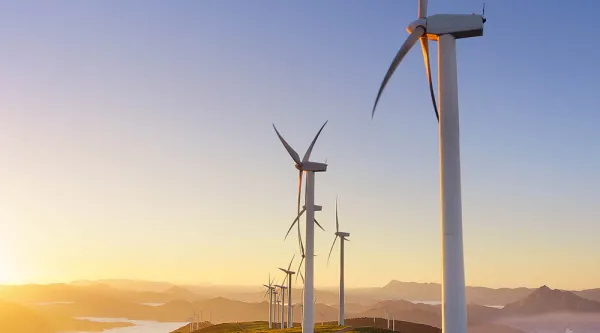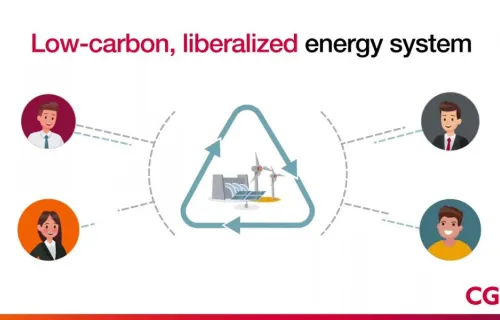What it means to be an energy company continues to evolve.
Competition is everywhere—even in formerly secure areas.
There is greater unpredictability and pressure on our current energy grid. Overall management of the ecosystem is critical to ensuring reliability. This could evolve to meeting service level agreements for residential and commercial microgrids.
Climate goals, decarbonization, and the shift to new energy technologies are driving new players to the global energy market.
Technology advances, regulation, electrification and distributed energy resources are changing the entire value chain at an accelerated pace. This includes convergence of hydrogen, oil, natural gas, electricity, renewables, low-carbon tech and storage into a common ecosystem.
The public and investors require transparency and are aware of greenwashing. Along with trace auditability of carbon and energy, this affects financial investment. As the world looks to measures like Carbon Border Taxes, such as in the EU, companies will need to track and report at the product level (e.g., e-certificates). A challenge, and opportunity, is to reengineer the business to take advantage of green financial practices.
Demonstrating a strong commitment to sustainability and the energy transition is essential to attracting and keeping customers and growing the business.
Digital technology and data play key roles in addressing climate risk and enabling the visibility, auditability and corporate accountability required to manage the energy value chain and journey to net zero.
The future of energy is open. It requires a secure, transparent, reliable, flexible and data-driven ecosystem that connects to existing and emerging ecosystems. This will allow governments, corporations and consumers to assess the carbon impacts of the choices they make.
How digital leaders are pivoting to improve resilience
Our CGI Voice of Our Clients research identifies the main pivots digital leaders in energy are taking to improve their resilience for the energy future.
They create customer-centric business models organized around a business outcome.
They think like the customer and innovate ahead of the curve to build loyalty and a following
They optimize their end-to-end digital value chain to create lasting value for their stakeholders.
They move from predicting and planning to sensing and responding.
They take insights-led approaches supported by effective data governance and enablement.
They change their mindset, reframe their mental model, remove old constructs and field teams based on capabilities versus organizational charts.
Transitioning to this way of working requires a sustained commitment to achieve continual transformation, a secure and safe environment to innovate, and developing the capabilities to thrive. This also requires an ecosystem of strategic partners to move at pace and scale.
We help you continually sense and respond to dynamic change to improve your organizational resilience.
- We’re here to help you navigate the energy transition with actionable insights and proven solutions across the value chain.
- We are practitioners with a unique perspective from our global role in building, integrating and running core systems and data platforms—systems that are producing results, from production to market management to settlement. Our mindset is different: we design and build solutions with the knowledge and capability to run them. We have a deep understanding of the energy business and its operations, as well as the convergence of the two.
- We are a responsible company, committed to achieving a more inclusive and sustainable world. We work with our clients, partners and supply chain to reduce the environmental and social impacts of the products and services we build and support, and those we use.
Definitions
- Energy: Anything that can be converted into a form of consumable energy, and its storage (e.g., electric, gas, petroleum-based or battery storage).
- Utilities industries: Organizations that generate / produce, distribute and / or sell services around water, sewage, electricity and natural gas. This may include telecommunications as convergence takes place.
- Oil and gas industries: Companies that perform upstream, midstream and downstream functions around carbon-based fuels such as petroleum.
- Energy value chain: Begins with the energy source and continues to generation / production, storage, distribution, demand response, trading, market operations, retailing, billing and financial settlement.





